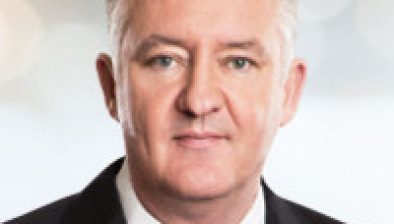Analysis: Director and consultant held personally liable for company’s debts

Fergus Doorly, Deirdre O'Donovan and Alexandra Drummy
William Fry lawyers Fergus Doorly, Deirdre O’Donovan and Alexandra Drummy examine a recent High Court case where two men were held personally liable for a limited company’s debts.
In De Lacy v Hevey [2024] IEHC 80, the High Court found that two men involved with the operation of Arden Forestry Management Limited, which carried out no genuine business, were personally liable for certain debts of the company totalling €3.8 million.
Background
The company defrauded creditors by offering investments in forestry schemes allegedly operated by the company. Investors paid a combined total of €6,432,745 believing that these funds had gone to acquire interests in forestry.
The two men, David Peile and Garret Hevey — collectively the respondents — pleaded guilty to criminal charges concerning the operations of the company, and were jailed for three years and six years respectively.
Mr De Lacy, the liquidator, was appointed to the company in 2016 and conducted a complex investigation into the fraud, which resulted in the recovery of a portion of the misappropriated sums from foreign bank accounts and the sale of assets held in the company’s name. In this application, the liquidator sought the following orders:
- A declaration under section 610(1)(a) and/or section 610(1)(b) of the Companies Act 2014 that Hevey was, while an officer of the company, knowingly a party to the carrying on the company’s business in a reckless manner and/or carrying on of the company’s business with intent to defraud creditors of the company and/or for another fraudulent purpose;
- A declaration under section 610(1)(b) of the 2014 Act that Peile was knowingly a party to the carrying on of the company’s business with intent to defraud creditors of the company and/or for another fraudulent purpose; and
- An order under section 610(2) of the 2014 Act declaring that each of the respondents are personally liable for all, or part of, the debts of the company, (amounting to €3,807,142 at the date of the hearing).
The burden was on the liquidator to show that the business of the company was carried on with the intent to either defraud creditors or for some other fraudulent purpose and that Hevey and Peile were separately and individually party to the carrying on of the business for these fraudulent ends.
Evidence
Hevey did not contest the application. Peile filed three affidavits contesting the application.
The liquidator averred that while Hevey was a director of the company, Peile was never either a director or a member of the company but was involved as a consultant and “second in command” to Hevey. The company aimed its fraudulent investment scheme towards investors in the UK, who would not have had detailed knowledge of the Irish forestry sector.
The liquidator also averred that the respondents used pseudonyms and issued falsified “timber certificates”. The liquidator also outlined how any payments which were given to investors were simply sourced from funds provided by other investors — traits of a classic Ponzi scheme.
Factors to consider holding a director personally liable
The court found that the company’s business was carried out fraudulently, with intent to defraud its creditors. The court then had to consider whether Hevey or Peile were knowingly a party to the carrying on of such a business.
In relation to Hevey the court pointed to several factors in support of its conclusion that he was knowingly a party to the carrying on of the business with the intent of defrauding creditors, including:
- his guilty plea to the criminal charges,
- his position as director of the company from its foundation,
- his responsibility for an investment brochure which made completely dishonest representations to potential investors,
- his knowledge of the limited amount of forestry purchased by the company and
- his responsibility for issuing false “timber certificates”.
The position was more complicated regarding Peile. However, the court relied on the following factors to support its finding that Peile was also knowingly a party to carrying out the business with intent to defraud its creditors:
- his guilty plea to charges of dishonestly and fraud. Although Peile’s proffered explanations for his guilty plea were not challenged by the liquidator, it weighed against him in the application;
- his failure to explain the receipt of over £300,000 from the company,
- his involvement in setting up bank accounts linked to the fraud,
- his participation in fraud against a named investor.
The court concluded Hevey was the architect of the fraud and was held liable for the total debts and liabilities of the company totalling €3.8m. The court found that Peile should be held liable for a specified portion of the debts and liabilities equal to the value of the frauds in which he was centrally involved.
Conclusion
Although Hevey did not contest the application, the decision highlights the factors a court may have regard to in holding a director personally liable for the debts of a company.
The decision against Peile is of note in illustrating the approach of the court to applications under section 610(1)(b), where the person is not a director or officer of the company, and the qualitative differences it will apply to determine the extent to which parties may be held responsible for a company’s debts.

- Fergus Doorly is a partner, Deirdre O’Donovan is a consultant and Alexandra Drumy is an associate at William Fry.







